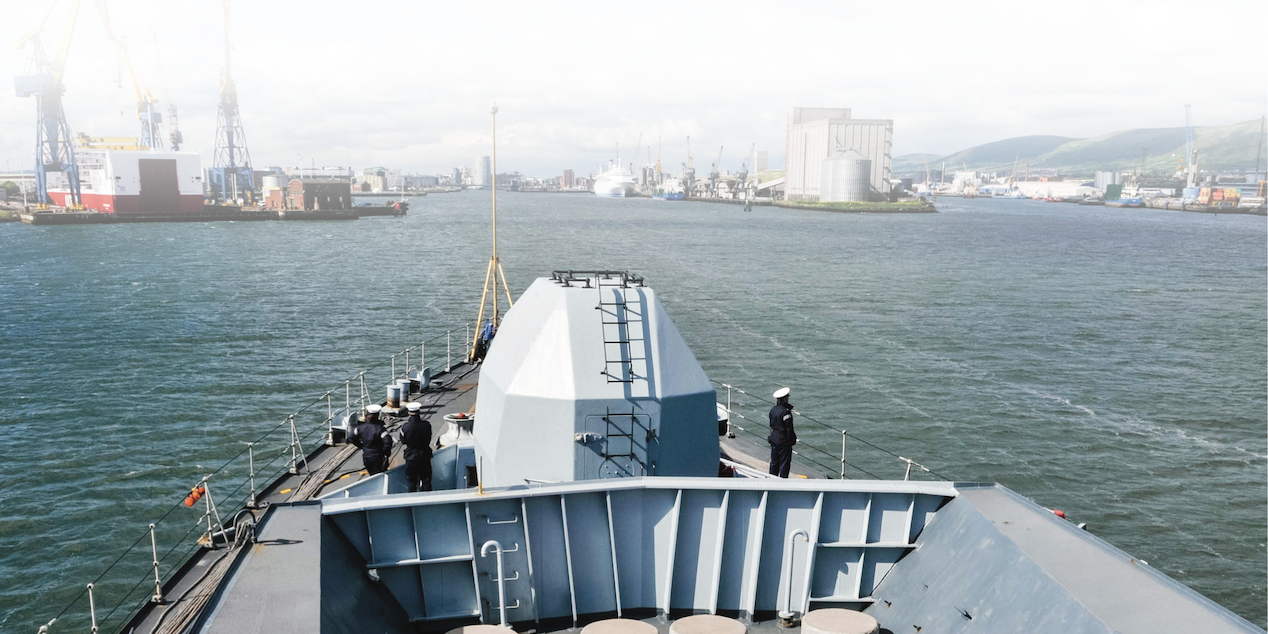
‘Closing the Backdoor’ – A review by Prof. Geoff Sloan
Closing the Back Door, a report published on 5th February 2024 by Policy Exchange sets out how the deteriorating threat landscape, and persistent Irish security freeloading, requires the UK to rediscover the strategic importance of Northern Ireland to its national security. Below is a review of this paper by Together UK Foundation Advisory Board Member, Prof. Geoff Sloan.
This year the Policy Exchange published a paper of seminal importance to both the Union and to Northern Ireland. It represents a nuanced understanding of the geopolitics of the British Isles in all of its historical, geographical, and strategic dimensions. In one sense this is not a new story. Ireland’s location in the context of the British Isles and Western Europe represents a paradox, of both isolation at the extreme western end of Europe and proximity to the bigger island of Great Britain. In 1574 a Spanish officer, Captain Diego Ortiz de Urizar visited Ireland on an information gathering mission for King Philip II of Spain. He summarised his strategic advice in the following way: ‘He who would England win
With Ireland must begin’.
The paper starts by citing the craven folly of the Conservative Secretary of State for Northern Ireland Peter Brooke who in November 1990 stated: ’the British Government has no selfish strategic or economic interest in Northern Ireland: our role is to help, enable and encourage’. The Irish Government was bedazzled by this statement. They assumed this meant:’ the strategic argument is now dead. This was important to reassure Sinn Fein who had always assumed this was the reason why Britain was still in Ireland’.
What was missed by the Policy Exchange report was the extent to which Brooke’s statement represented weasel words. The use of the word ‘selfish’ masked the ongoing strategic reality; since 1949 Northern Ireland has been an integral part of the territory of the NATO alliance. This remains the case in 2024 despite the absence of any specific NATO bases in this part of the United Kingdom since 1990.
The real value of this report is twofold. First it produces both an insightful geopolitical analysis of Ireland’s importance in the First World War, and the vital role Northern Ireland played in both the Second World and the Cold War. The first half of the report cited extensively a book titled: The Geopolitics of Anglo-Irish Relations written by Dr Geoff Sloan.
The second part of the report is a tour de force in highlighting the vulnerability the Irish Republic represents to the rest of the British Isles in terms of digital maritime infrastructure, its undefended air space and neglected territorial waters. This is a result of decades of inadequate defence spending. It also gives granular details concerning the extent to which Russia is using Dublin as a base for espionage and subversion. The magnet being the common travel area that has existed between the United Kingdom and the Irish Republic since 1922.The numbers of Russian diplomatic personnel accredited to their Dublin embassy is the largest in Europe. In 2022 it stood at 30. The UK has a total of 22. Poland has 10, Germany 12, and France 19 respectively. This role was underlined by a Russian application to extend the size of their diplomatic compound. This was only refused after the Biden Administration put pressure on the Irish Government. The underlying geopolitical problem is continuing Irish neutrality, a relic from De Valera’s ‘Free State’ era. Yet the current policy elite in Dublin still cling to this like drowning men.
Strategy is about creating choices, and hopefully affecting the choices of your adversary. The Policy Exchange report concludes with an attempt create choices for the United Kingdom. It urged the government of Rishi Sunak to rediscover the ‘fundamental role’ that Northern Ireland plays in the grand strategy of the United Kingdom. In the dying embers of this government an announcement was made concerning an intention to build a new base for the Royal Navy in Londonderry. The civil servants will ensure that it will be quietly buried by the new Labour Government.
This is not a new story. In May 1938 a backbench MP called Winston Churchill castigated a Conservative Government for failing to recognise that the defended ports of Haulbowline Island, Berehaven and Lough Swilly constituted the ‘sentinel towers of the western approaches’. He was ignored of course with near fatal consequences when the Second World War occurred. This report by the Policy Exchange represents the same geopolitical insight concerning the United Kingdom’s future security.
Geoff Sloan is an Associate Professor at the University of Reading and a member of our Advisory Board.

